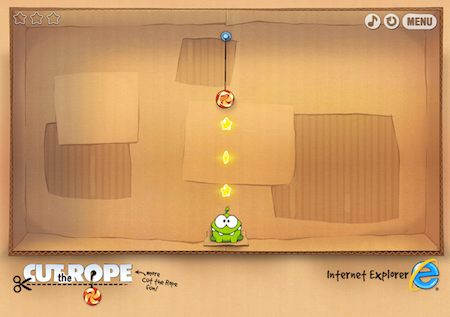This article is more than 1 year old
Crazy Geckos: Nitot on Mozilla's post-Firefox mobile crusade
Open-source handset versus Android and Apple
Obey the rules
Google’s first foray into Android was shot down by the industry: it sold its first Nexus handset direct, cutting out the middleman and upsetting the telcos with which it was now competing. Google was soon forced to end direct sales. Remember the Neo FreeRunner in 2008? It was an open-source and Linux effort developed by the OpenMoko project under a GPL licence and was supposed to be manufactured by First International Computer. It was an idealist's dream, but apart from a few open-source diehards at the odd tech show nobody uses it and FIC doesn’t seem to now be selling FreeRunner phones.
Mozilla is obeying the first rule of mobile: work with the telco big boys.
Chris Heilmann, principal evangelist at Mozilla for HTML5 and open web, told The Reg: “We don’t sell the phone, we partner with those who know how to get the phone into people’s hands. The main idea of B2G is it’s so lightweight with only a Linux core with Firefox on top. For telcos it will be interesting to put them into markets where people can’t afford smartphones. In the past every open-source phone tried to interrupt the US, European market – or Finnish market, in Neo’s case.”

Cut the Rope: Microsoft demonstrates its conversion to HTML5
Mozilla doesn’t want you hacking your phone with B2G and upsetting the carriers, either. Heilmann warns that installing B2G on a phone today will break your phone and erase the existing copy of Android. Jailbreaking is not Mozilla’s chosen path. “It’s not made for that. We want to partner with people who know how to get phones out there and convince them HTML5 is the opportunity of the future rather than saying install it on your phone and show off because it’s cool,” Heilmann says.
Another challenge is whether B2G can match the iPhone or Android phones on performance. The rule on consumer devices is hard: get it right first time or go home. B2G handsets can’t afford inferior performance.
B2G is working on performance by using hardware-accelerated 3D with WebGL, the JavaScript API for rendering 3D interactive graphics. It is hoped that, combined with a faster Firefox, HTML5 apps – games especially – will be as good as or better than native apps on iPhone or Android.
“A web game that doesn’t run in 50 frames per second – that will feel sluggish... their [people’s] Facebook app should perform as well as an iPad app and they only way we can do that is by juicing up the JavaScript engine and talking to the hardware teams using the acceleration that’s out there,” Heilmann says.
Hardware acceleration helps prolong battery life, too. Graphics performance is delivered using a graphics processor rather than the phone’s CPU, which would drain the battery and mean the phone would need a lot of re-charging.
The payoff for developers on WebGL is that it’s open, and thus takes the hard work out of writing HTML5 apps for different devices. “We have an even starting ground rather than having to find out what browser does what in the DOM (document object model),” Heilmann said.
The technology and the philosophy sound simple, but politics isn't and the telco business is very political. Apple and Google have billions in the bank to fund R&D and buy industry influence. Mozilla, by contrast, is a non-profit.
Mozilla says it can exert influence and lead by example. However, I think Mozilla’s idealism will have to suit the self interest of partners, who will certainly find a way to help B2G suit their commercial goals.
On leadership, Mozilla believes its track record speaks for itself: with Firefox having forced Microsoft to re-start IE development and, recently, getting Google, Microsoft and others to follow its lead on Do-Not-Track in the browser. The Do-Not-Track project stops websites using your browser’s history to track you around the web and keep serving you ads. Microsoft and Google have a foot each in the ads camp, running large ad-serving networks and partnering with ad-serving companies – meaning they were reluctant to back the kind of DNT that Mozilla introduced in Firefox 4 last year.
